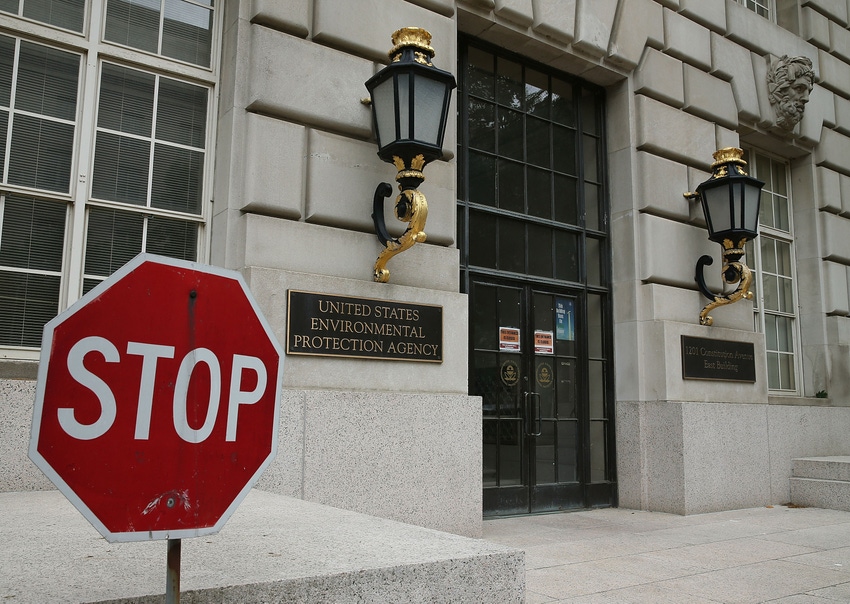Legislation to fast-track low-carbon biofuels
Bipartisan, bicameral bill will remedy EPA logjam on approving applications to produce advanced biofuels under RFS.
November 18, 2020

Reps. Cheri Bustos (D., Ill.) and Jim Hagedorn (R., Minn.) introduced bipartisan, bicameral legislation that would lower greenhouse gas emissions and encourage low-carbon fuel production. The Streamlining Advanced Biofuels Registration Act would help biofuel plants cut through red tape in order to increase production of cellulosic biomass into renewable fuels.
The Renewable Fuel Standard (RFS) requires energy producers to utilize low-carbon, renewable fuels. Cellulosic biomass, a non-food product that can be used as an energy source, can be utilized to produce low-carbon renewable fuels with a 60% reduction in greenhouse gas emissions compared to non-renewable fuels. The increased use of cellulosic biomass to produce renewable fuels could greatly reduce the amount of greenhouse gases released into the environment.
However, in order to process cellulosic biomass under the RFS, the Environmental Protection Agency must approve applications on behalf of biofuel producers.
EPA has refused to act on dozens of applications from biofuel producers. The Streamlining Advanced Biofuels Registration Act would force EPA to act on outstanding applications and compel the agency to accept applications if, after 90 days, the fuel could participate in at least one state’s clean transportation program.
“Reducing greenhouse gases while investing in renewable fuels means we must take steps to help our biofuels producers utilize every available fuel source while supporting our corn farmers,” Bustos said. “By cutting red tape and ensuring that producers receive a timely response from the EPA, we can encourage the use of cellulosic biomass in low-carbon, renewable fuel production and continue to create cleaner, more environmentally friendly fuels.”
“This legislation is an important step toward improving clean energy technology and efficiency with the help of corn producers and the ethanol industry,” Hagedorn said. “By forcing the EPA to make timely decisions on these applications, we are opening new markets that will power southern Minnesota communities and the nation’s economy. I’m extremely pleased to work in bipartisan fashion with Congresswoman Bustos on this important initiative.”
READ more about the Streamlining Advanced Biofuels Registration Act.
Josh Shields, senior vice president of external affairs at POET, the nation's largest ethanol producer, said, “POET applauds Reps. Bustos and Hagedorn for their leadership on this important issue. Renewable fuels are a critical part of the solution in the fight against climate change, and our nation needs to use every tool at its disposal. The Renewable Fuel Standard (RFS) has long promised not only low-carbon fuel from corn starch but also that which can be made from additional feedstocks and energy-dedicated crops. While companies like POET have honored our commitment to developing these fuels with billions of dollars of research, EPA has consistently prevented our applications from moving forward and left us with little to no incentive to continue our vital research and development in this area of energy innovation. This legislation will remedy the EPA logjam and get our nation back on the right path to pursuing the zero-carbon liquid fuel option that drivers will need to overcome our reliance on fossil fuels.”
Advanced Biofuels Business Council director Brooke Coleman applauded Bustos and Hagedorn “for proposing a bipartisan and commonsense solution to the regulatory logjam blocking cellulosic biofuels from the consumer marketplace. There are dozens of registration applications in seemingly perpetual review at EPA, freezing the commercial deployment of low-carbon, cellulosic biofuels and discouraging investment in U.S. innovation. This legislation takes the critical first step of recognizing the problem and forcing EPA to rule on long-overdue pathway and registration petitions. The cellulosic biofuels industry is ready to help decarbonize and revitalize the U.S. economy. Solving the EPA registration problem is a critical piece of the puzzle.”
“We applaud Reps. Bustos and Hagedorn for introducing this legislation to streamline pathways for low-carbon biofuels,” Growth Energy chief executive officer Emily Skor said. “Unnecessary delays have stalled progress on the biofuels industry’s ability to harness clean energy from agricultural residue, corn fiber and waste. We know that cellulosic technologies can reduce greenhouse gas emissions by 100% or more, providing options for negative-emissions liquid fuels and providing a low-cost alternative to petroleum-based aromatics that poison our air and threaten our health. This important legislation will help clear the deck on long-overdue approvals and jump-start growth in these innovative technologies at a time when revitalizing rural communities has never been more important.”
Carrie Annand, executive director of Biomass Power Assn., said the group “is grateful to Rep. Bustos and Rep. Hagedorn for introducing this bill and holding EPA to account for the qualifying fuels it hasn’t yet included in the RFS. Electricity producers have been waiting for nearly 13 years to be included in the program, even after [the updated RFS] made clear that electricity generated from approved feedstocks qualifies to generate [renewable identification numbers]. It’s time for the EPA to do its job by processing applications for electricity producers and others to participate in the RFS. We urge swift approval and enactment of this bill.”
Patrick Serfass, executive director of the American Biogas Council, said, "We believe it proposes a reasonable solution to a long-running problem that has led to delays in the development of biogas to electricity projects. As a result of the unprocessed applications at EPA, many biogas developers have decided to forgo applying to the program rather than devoting resources to a process that would leave them in limbo. Biogas projects want to participate in the RFS by making electricity. We are hopeful this legislation will enable them to do so.”
Sens. John Thune (R., S.D.) and Jeanne Shaheen (D., N.H.) will carry the legislation in the Senate.
You May Also Like


.png?width=300&auto=webp&quality=80&disable=upscale)
